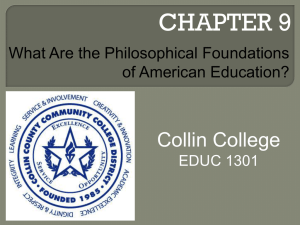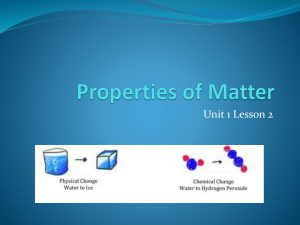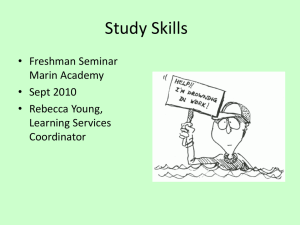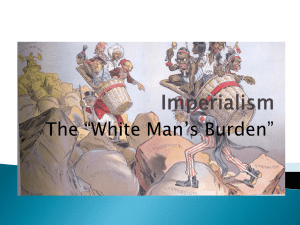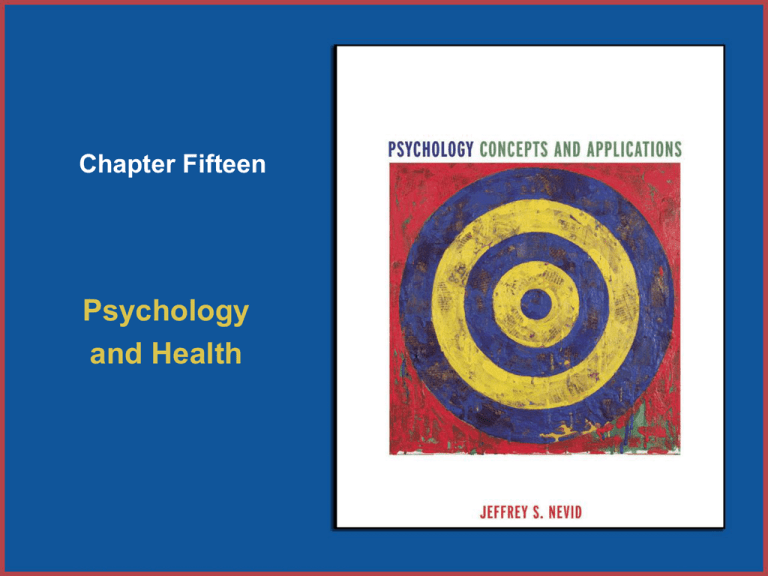
Chapter Fifteen
Psychology
and Health
Copyright © Houghton Mifflin Company. All rights reserved.
15–1
Did You Know That…
• Happy or joyous events can be a source of
stress?
• The emotional stress of divorce or even
college examinations may damage your
health?
• Optimistic people have fewer postoperative
complications following coronary artery
bypass surgery than pessimistic people?
Copyright © Houghton Mifflin Company. All rights reserved.
15–2
Did You Know That… (cont.)
• Chronic anger may be harmful to your heart?
• Two modifiable behaviors, smoking and diet,
account for nearly two of three cancer deaths
in the United States?
• Regular exercise increases resilience to
stress?
• Writing about traumatic experiences may
boost the body’s immune system?
Copyright © Houghton Mifflin Company. All rights reserved.
15–3
Module 15.1
Stress: What It Is and What It Does
to the Body
Copyright © Houghton Mifflin Company. All rights reserved.
15–4
Module 15.1 Preview Questions
• What is health psychology?
• What is stress, and what are the major
sources of stress?
• How does the body respond to stress?
• How does stress affect the immune system?
• What is burnout?
• What psychological factors buffer the effects
of stress?
Copyright © Houghton Mifflin Company. All rights reserved.
15–5
Health Psychology
• Study of the interrelationships between
psychology and physical health.
• Especially concerned with effects of stress.
– Stress: Pressure or demand placed on an
organism to adjust or adapt.
– Distress: An internal state of physical or mental
pain or suffering.
Copyright © Houghton Mifflin Company. All rights reserved.
15–6
Copyright © Houghton Mifflin Company. All rights reserved.
15–7
Sources of Stress: Hassles
• Annoyances of daily lives that impose a
stressful burden.
• Accumulation of daily hassles can lead to
chronic stress.
– State of persistent tension or pressure.
Copyright © Houghton Mifflin Company. All rights reserved.
15–8
Copyright © Houghton Mifflin Company. All rights reserved.
15–9
Sources of Stress: Life Events
• Major changes in life circumstances can lead
to lead to stress.
– Can be positive or negative life events.
• May contribute to physical health problems
• Impact on health varies with:
– One’s coping skills.
– One’s attitude.
– How one appraises or evaluations a life event.
Copyright © Houghton Mifflin Company. All rights reserved.
15–10
Sources of Stress:
Frustration and Conflict
• Frustration: The negative emotional state that
occurs when our efforts toward a goal are
blocked.
• Conflict: State of tension brought about by
opposing motives operating simultaneously.
Copyright © Houghton Mifflin Company. All rights reserved.
15–11
Figure 15.1: Types of Conflict
Copyright © Houghton Mifflin Company. All rights reserved.
15–12
Sources of Stress:
Traumatic Stressors
• Potentially life-threatening events.
• May lead to development of posttraumatic
stress disorder (PTSD).
• Adjustment problems associated with PTSD:
–
–
–
–
–
Avoidance of cues associated with the trauma.
Reexperiencing the traumatic event.
Impaired functioning.
Heightened arousal.
Emotional numbing.
Copyright © Houghton Mifflin Company. All rights reserved.
15–13
Sources of Stress: Type A
Behavior Pattern (TABP)
• Characterized by impatience,
competitiveness, and aggressiveness.
• Type B pattern: slower, more relaxed pace in
life.
• Type A is associated with a higher risk of
heart disease.
Copyright © Houghton Mifflin Company. All rights reserved.
15–14
Sources of Stress:
Acculturative Stress
• Demands immigrants experience adjusting to
a new culture.
• Pressure to acculturate involves adapting to
the values, linguistic preferences, and
customs of the host or dominant culture.
• Successful adjustment depends on a number
of factors.
– Economic opportunities, language proficiency,
social network connections.
Copyright © Houghton Mifflin Company. All rights reserved.
15–15
General Adaptation Syndrome
(Hans Selye)
• Alarm Stage
– Fight-or-flight response
– Strong psychological, physiological arousal
• Resistance Stage ( or adaptation stage)
– Attempt to return to normal state
• Exhaustion Stage
– Resources seriously depleted
– “Diseases of adaptation”
Copyright © Houghton Mifflin Company. All rights reserved.
15–16
Figure 15.2: Level of Resistance During the Stages
of the General Adaptation Syndrome
Copyright © Houghton Mifflin Company. All rights reserved.
15–17
Stress and the Endocrine System
• Chain reaction to stress
– Hypothalamus: corticotrophin-releasing hormone
(CRH)
– Pituitary gland: adrenocorticotrophic hormone
(ACTH)
– Adrenal cortex: corticosteroids
– Adrenal medulla: epinephrine, norepinephrine
Copyright © Houghton Mifflin Company. All rights reserved.
15–18
Figure 15.3:
Body’s Response to Stress
Stress and the Immune System
• Immune system is our primary defense
against disease and infection.
• Immunity develops through:
– Antigen “memory”
– Vaccinations
• Stress weakens the immune system.
Copyright © Houghton Mifflin Company. All rights reserved.
15–20
Burnout
• State of physical and emotional exhaustion
• Results from:
– Excessive job demands
– Caregiving responsibilities
– Other stressful commitments
• Influenced by:
– Role conflict: competing demands for time
– Role overload: can’t say “no”
– Role ambiguity: unsure of expectations
Copyright © Houghton Mifflin Company. All rights reserved.
15–21
Copyright © Houghton Mifflin Company. All rights reserved.
15–22
Figure 15.4:
Psychological
Moderators of
Stress
Copyright © Houghton Mifflin Company. All rights reserved.
15–23
Psychological Hardiness
• Cluster of traits that may buffer the effects of
stress.
• Three key traits:
– Commitment
– Openness to challenge
– Internal locus of control
Copyright © Houghton Mifflin Company. All rights reserved.
15–24
Positive Psychology
• A developing movement in psychology,
founded by Martin Seligman.
• Psychology should focus on the study of
human virtues and assets, rather than
weaknesses and deficits.
Copyright © Houghton Mifflin Company. All rights reserved.
15–25
Module 15.2
Psychological Factors in
Physical Illness
Copyright © Houghton Mifflin Company. All rights reserved.
15–26
Module 15.2 Preview Questions
• How are psychological factors linked to the
health of our heart and circulatory system?
• What roles do psychological factors play in
the development of cancer?
• What roles do psychological factors play in
other health conditions, such as asthma,
headaches, and ulcers?
Copyright © Houghton Mifflin Company. All rights reserved.
15–27
Copyright © Houghton Mifflin Company. All rights reserved.
15–28
Figure 15.5: America’s Leading Killers
Copyright © Houghton Mifflin Company. All rights reserved.
15–29
Figure 15.6: Risk Factors for
Coronary Heart Disease
Copyright © Houghton Mifflin Company. All rights reserved.
15–30
Figure 15.7:
Risks of
Death Among
Current and
Former
Smokers
Compared to
NeverSmokers
Copyright © Houghton Mifflin Company. All rights reserved.
15–31
Figure 15.8:
Racial and
Ethnic
Differences in
Death Rates
Due to
Coronary
Heart Disease
in U.S.
Copyright © Houghton Mifflin Company. All rights reserved.
15–32
Emotions and Your Heart
• Emotional patterns associated with heart
disease
– Type A: hostile, chronic anger
– Persistent anxiety
• Persistent emotional arousal
– Damage to cardiovascular system by stress
hormones
Copyright © Houghton Mifflin Company. All rights reserved.
15–33
Cancer
• A disease in which body cells exhibit
uncontrolled growth.
– Formation of malignant tumors which damage
body organs, systems
• Many causes
– But two of three cancer deaths in U.S. attributable
to smoking and diet.
Copyright © Houghton Mifflin Company. All rights reserved.
15–34
Copyright © Houghton Mifflin Company. All rights reserved.
15–35
Risk Factors for Cancer
•
•
•
•
Smoking
Diet and alcohol consumption
Sun exposure
Stress
Copyright © Houghton Mifflin Company. All rights reserved.
15–36
Stress and Other Physical Disorders
• Asthma
• Headaches
• Peptic ulcers
Copyright © Houghton Mifflin Company. All rights reserved.
15–37
Module 15.3
Application: Taking the Distress
Out of Stress
Copyright © Houghton Mifflin Company. All rights reserved.
15–38
Module 15.3 Preview Question
• What are some ways of taking the distress
out of stress?
Copyright © Houghton Mifflin Company. All rights reserved.
15–39
Managing Stress Levels
•
•
•
•
•
•
Reduce daily hassles
Know your limits
Follow a reasonable schedule
Take frequent breaks
Develop time-management skills
Learn to prioritize
Copyright © Houghton Mifflin Company. All rights reserved.
15–40
Various Techniques
•
•
•
•
•
•
Develop relaxation skills
Take care of your body
Gather information
Expand social network
Prevent burnout
Replace stress-inducing thoughts with stressbusting thoughts
• Don’t keep upsetting feelings bottled up
Copyright © Houghton Mifflin Company. All rights reserved.
15–41
Control Type A Behavior
•
•
•
•
•
•
•
Take things slower
Read books for enjoyment
Leave your computer at home
Avoid rushing meals
Enjoy activities
Develop relaxing interests
Set realistic daily goals
Copyright © Houghton Mifflin Company. All rights reserved.
15–42



